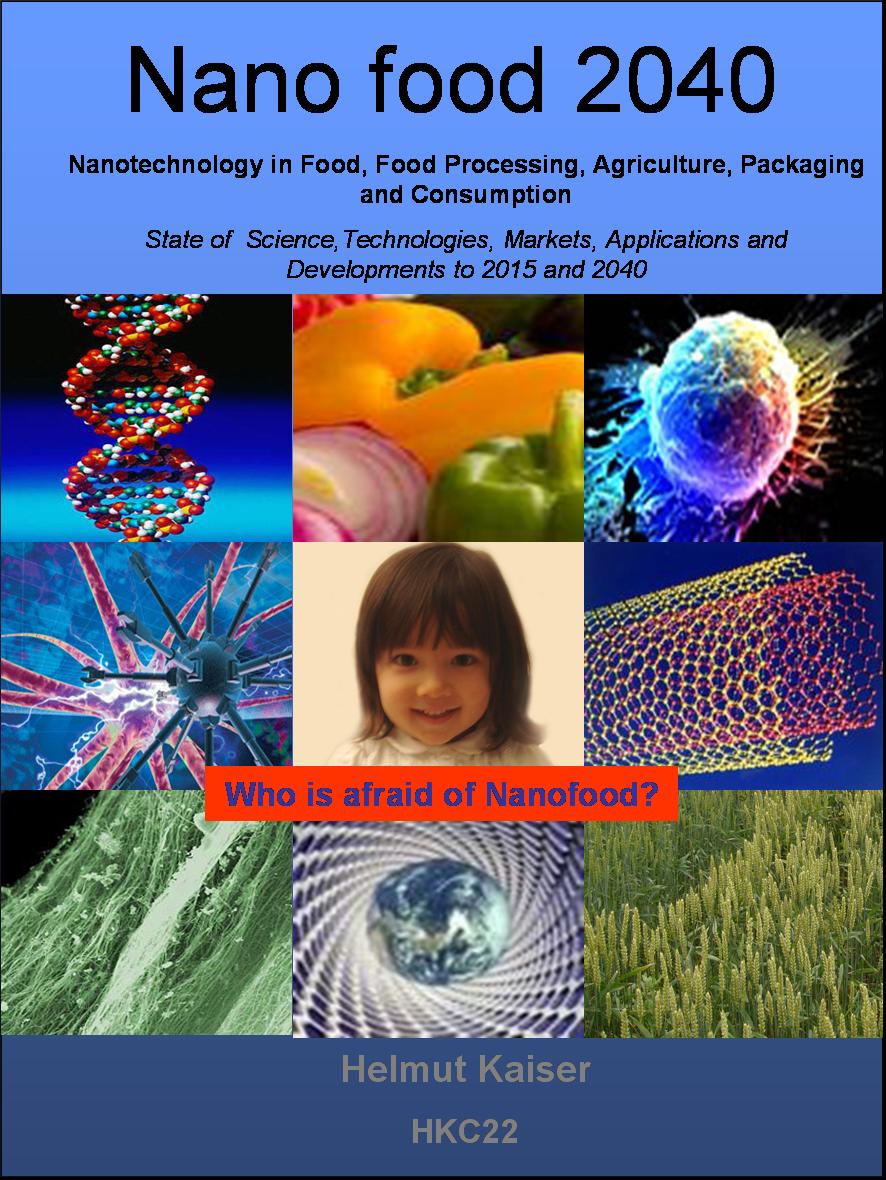How Nanotechnology Can Help Us Grow More Food Using Less Energy and Water
Ramesh Raliya and Pratim Biswas | May 29, 2016
Nanotechnology – designing ultrasmall particles – is now emerging as a promising way to promote plant growth and development. This idea is part of the evolving science of precision agriculture, in which farmers use technology to target their use of water, fertilizer and other inputs. Precision farming makes agriculture more sustainable because it reduces waste.
 |
| "Nanotechnology in Food, Foodprocessing , Agriculture, Packaging and Consumption." Source: http://www.hkc22.com/nanofood2040.html |
<more at http://www.iflscience.com/technology/how-nanotechnology-can-help-us-grow-more-food-using-less-energy-and-water; related articles and links: https://www.geneticliteracyproject.org/2016/04/06/as-food-shortage-worsens-zimbabwe-refuses-gmo-food-aid-has-to-import-food-from-afar/ (As food shortage worsens, Zimbabwe refuses GMO food aid, has to import food from afar. April 6, 2016) and http://journal.frontiersin.org/article/10.3389/fenvs.2016.00020/full (Nanotechnology in Agriculture: Which Innovation Potential Does It Have? Leonardo F. Fraceto, Renato Grillo, Gerson A. de Medeiros, Viviana Scognamiglio, Giuseppina Rea and Cecilia Bartolucci. Frontiers in Environmental Science, March 22 2016. http://dx.doi.org/10.3389/fenvs.2016.00020. [Summary: Recent scientific data indicate that nanotechnology has the potential to positively impact the agrifood sector, minimizing adverse problems of agricultural practices on environment and human health, improving food security and productivity (as required by the predicted rise in global population), while promoting social and economic equity. In this context, we select and report on recent trends in nanomaterial-based systems and nanodevices that could provide benefits on the food supply chain specifically on sustainable intensification, and management of soil and waste. Among others, nanomaterials for controlled-release of nutrients, pesticides and fertilizers in crops are described as well as nanosensors for agricultural practices, food quality and safety.]) >

No comments:
Post a Comment